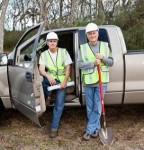ARTICLES
-
Claiming deductions for plant and equipment
-
Review of management accounts
-
Tax tips for property investors
-
Cash flow strategies
Claiming deductions for plant and equipment
The intended repeal of the Mineral Resources Tax by the Federal Government could result in the scaling back of capital allowance concessions back dated to 1 January 2014.
Business owners should make sure they are aware of the changes. The capital allowances for small business entities this year end is:
- small business entities would be able to claim a deduction for the value of a depreciating asset that costs less than $1000 (rather than the $6500 before 1 January) in the income year in which the asset is first used or installed ready for use
- small business entities would be able to claim a deduction for an amount included in the second element of the cost of a depreciating asset that was first used or ready to use in the previous income year
- small business entities would be able to allocate depreciating assets that cost $1000 (rather than the $6500 before 1 January) or more to their general small business pool and claim a deduction for the depreciation of the assets in the pool
- assets allocated to the general small business pool would depreciate at a rate of 15 per cent in the year they are allocated and a rate of 30 per cent of subsequent years and;
- if the value of a small business entity’s general small business pool is less than $1000 (rather than $6500 before 1 January) at the end of the income year, the small business entity would be able to claim a deduction for the entire value of the pool.
Review of management accounts
Business owners should be taking the time to review the business management accounts a few months prior to 30 June 2014.
This is best done with your accountant or tax advisor as they can help to identify tax areas and opportunities that may require further consideration.
A few key areas that need to be reviewed prior to year end include:
Owner’s salary
Business owners should consider the salary they are receiving. Owners should review the overall position of their business with the view of increasing or decreasing their personal salary accordingly. Owners may often find that there is an added cost in paying a larger salary to themselves, especially if it is not necessary.
Estimated tax position
Owners should calculate the estimated tax position for the year. This will assist with the year end planning and budgeting.
If the estimated tax payable is lower than anticipated, it is a good idea to consider varying the entity’s June business activity statement to lower the final PAYG instalment payment for the year.
Other considerations
Owners should also consider additional superannuation contributions, prepayment of expenses, deferral of income and writing off assets.
Tax tips for property investors
 It is an ideal time for individuals to review their investment situation and take the opportunity to minimise their tax obligations.
It is an ideal time for individuals to review their investment situation and take the opportunity to minimise their tax obligations.
Here is a list of tax tips for property investors:
- Renovations by previous owner
- Individuals may be eligible for a deduction for depreciation on the cost of improvement by a previous owner, provided items are identifiable and itemised in a depreciation schedule.
- Repairs at time of purchase
- Expenses for repairs to the property are deductible provided that they relate to wear and tear or any other damage as a result of earning rental income.
- Prepay property expenses
- Individuals may be able to prepay property expenses up to 12 months in advance. Prepaid expenses are not automatically deductible. However, a review of eligible payments should be carried out.
- Depreciation report
- A depreciation report prepared by a qualified quantity surveyor outlines the deductions available on an investment property. This can help to add a significant tax deduction for depreciation and also maximise an individuals cash return. The cost of a depreciation report is tax deductible.
- Travel expenses
- Travelling to a property to inspect, carry out maintenance or collect rent may be able to be claimed as a tax deduction.
- Keep receipts
- It is important to keep all receipts to be able to prove deductions and show why the expense was incurred to derive assessable income.
- Property data matching
- The ATO uses data matching techniques, including monitoring property transaction details to target property investors ensuring the correct amount of tax is paid.
Cash flow strategies
Without profits and positive cash flow, a business is going to struggle to survive. This is why cash flow strategies should be taken seriously.
Aim for long term financial stability
When setting finance and cash flow goals for the business it is important to aim for long term stability. Businesses should realistically assess how and when they want to reach their long term goals.
Don’t forget to consider customers who are permitted to make purchases on credit as it will help in forecasting how much cash is coming into the business and whether it will be enough to cover expenses.
Profit first and growth later
Businesses should aim to increase profits in the present and use them to grow the business in the future. Approaching it the other way around isn’t always a good idea, especially for start-up companies.
Be aware of timing
Businesses need to be aware of exactly when money is coming in and when it is going out. Although owners may not be directly responsible for the accounting side of the business, they should at least be aware.
It is also important to have a plan in place to ensure that clients pay promptly so that the business can know when to expect a payment.

